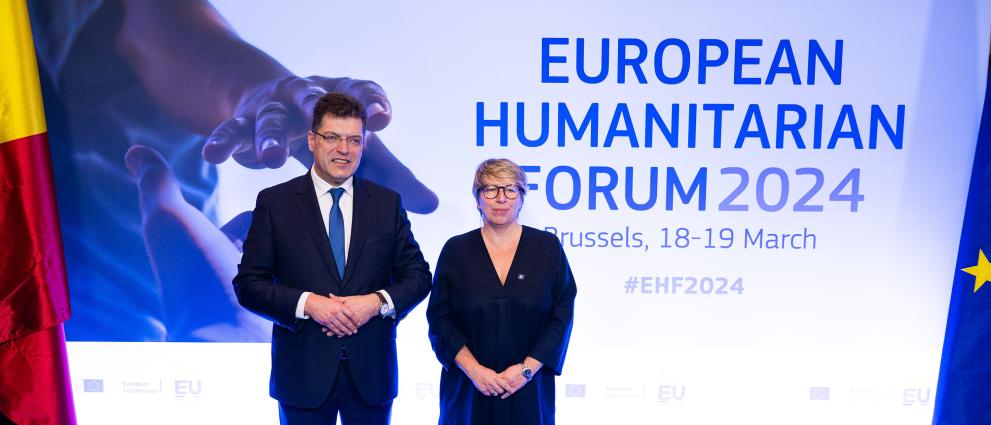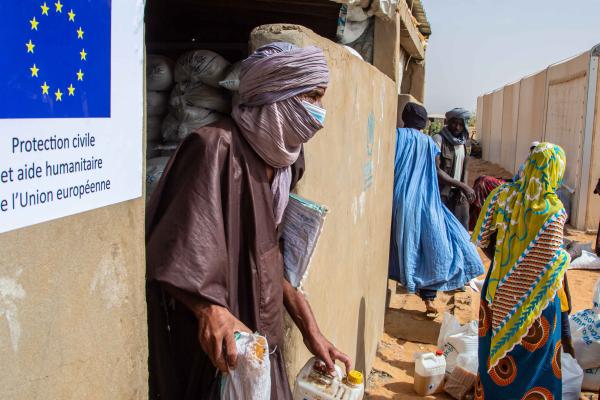
The third edition of the European Humanitarian Forum concluded today in Brussels, co-organised by the European Commission and the Belgian Presidency of the EU.
At the Forum, EU Member States together with the European Commission announced the planned humanitarian funding of more than €7.7 billion for 2024, as a concrete expression of global solidarity and of the EU's leading role in humanitarian action.
In particular, the EU and Member States committed to taking action in addressing conflict and preserving humanitarian space, notably in the deteriorating situation in the Gaza Strip. EU ministers expressed grave concern regarding the current humanitarian situation in the Strip and called for rapid, unhindered, safe and continued humanitarian access to the people in need.
The participants also focused on promoting compliance with International Humanitarian Law (IHL) globally in today's armed conflicts and welcomed the announcement of an independent, non-governmental initiative named “IHL in Focus”.
Concretely, this initiative will establish a yearly analysis on current armed conflicts and related IHL violations to contribute to setting out the state of compliance with IHL across the world.
The forum gathered over 1,400 representatives from across the humanitarian community, EU Member States and beyond took part in strategic discussions to jointly propose sustainable solutions to complex humanitarian challenges of today.
Commissioner for Crisis Management, Janez Lenarčič, said: "At this year’s European Humanitarian Forum, when we are marking record high humanitarian needs, the European Commission and EU Member States jointly announced the humanitarian funding of over €7.7 billion for 2024. This is a solid initial pledge for this year, reflecting both global solidarity and the EU's outstanding position in humanitarian action. At the same time, to prevent the collapse of international humanitarian system, the humanitarian community brought together at this Forum, clearly stressed the urgent need for sustainable and fair funding of humanitarian action, increased respect of International Humanitarian Law as well as joined-up action, matching emergency assistance with development and peace efforts to help the mostly forgotten vulnerable communities break free from the cycle of fragility and dependency."
Minister of Development Cooperation of Belgium, Caroline Gennez, said: "The European Humanitarian Forum has become a fixed appointment for policymakers and aid workers committed to international solidarity and humanitarian assistance. Its relevance this year was, unfortunately, emphasized by the unprecedented high level of humanitarian needs worldwide and the ongoing catastrophe in Gaza. The international donor community must make an effort to keep up. This year, the EU managed to pledge €7,7 billion for 2024. Beyond that, we succeeded in putting a much-needed spotlight on humanitarian crises that are forgotten and underfunded, like in DRC, and delivered a clear message that we need to push back against the increasingly rash and gross violations of international humanitarian law, whenever or wherever they may happen. If we allow these violations to continue without consequences, we are undermining international law itself, and the rules-based order of which it is the foundation. Ultimately, we will all pay the price."
Background
Highlighting equity and inclusivity, the Forum advocated for meaningful participation of local actors, especially those representing marginalised groups, and underscored the significance of long-term solutions based on the humanitarian-development-peace nexus.
Protection and the commitment to increased funding for targeted humanitarian interventions were central themes, along with recognising the pivotal role of strategic supply chains and logistics in delivering aid efficiently.
More broadly, discussions at the Forum tackled the humanitarian funding gap also by diversifying resources, enhancing the humanitarian system's efficiency, and reducing needs.
Additionally, the Forum explored avenues to increase climate finance for conflict-affected, climate-vulnerable areas, emphasizing the importance of building resilience in fragile contexts.
Details
- Publication date
- 19 March 2024
- Author
- Directorate-General for European Civil Protection and Humanitarian Aid Operations (ECHO)


